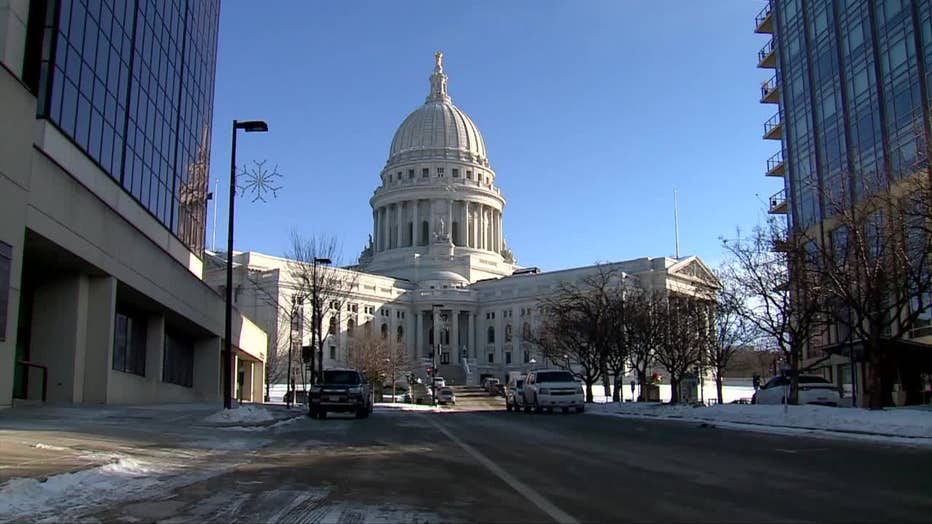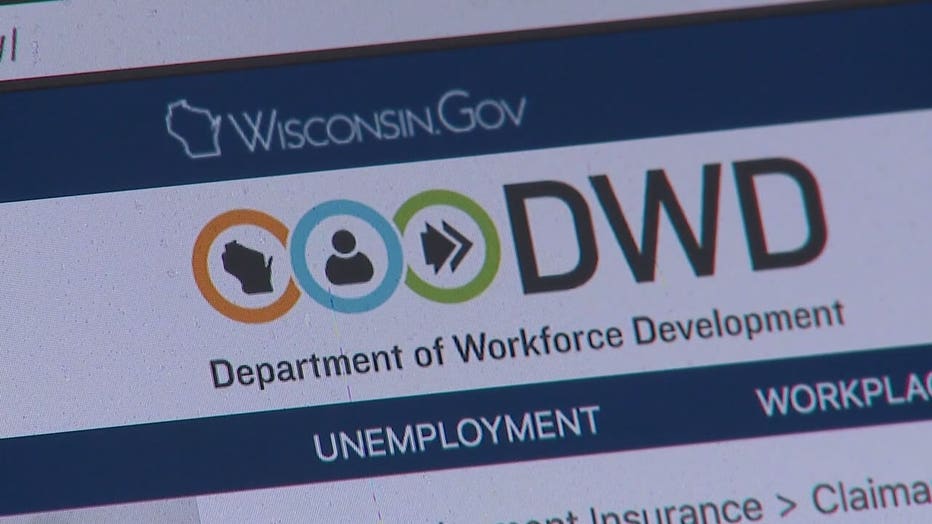Wisconsin Assembly approves unemployment, Medicaid restrictions

Wisconsin Assembly public benefits vote; plans would tighten eligibility
The Wisconsin Assembly was scheduled to pass a package of Republican-authored bills Thursday designed to force more people into the workforce by tightening eligibility for unemployment benefits and Medicaid coverage.
MADISON, Wis. - The Wisconsin Assembly approved a package of Republican-authored bills Thursday designed to force more people into the workforce by tightening eligibility for unemployment benefits and Medicaid coverage.
The legislation goes next to the state Senate. That chamber is expected to take up the package before the legislative session ends next month. Democratic Gov. Tony Evers almost certainly will veto the proposals if they reach his desk.
Regardless, the proposals give Republicans a platform to discuss the state's worker shortage problem while making the case that part of what is fueling it are public benefits that are too generous. Wisconsin's unemployment rate hit a record low of 2.8% in December.
SIGN UP TODAY: Get daily headlines, breaking news emails from FOX6 News
The bills have generally been supported by the state's business community and conservatives who want to tighten eligibility for such programs.
"Our current (unemployment) programs provide for a prolonged stay on these programs," Rep. Alex Dallman, chief sponsor of a bill in the package that would link the duration of unemployment benefits to the unemployment rate, said at a news conference ahead of the vote. "We should be encouraging people to get back to work in a quicker manner. We all know there’s jobs on every corner of our streets and our cities."

Opponents of one or more of the bills include groups advocating for the hungry, poor people, those with disabilities, children and public health.
Republicans call it a foundational shift in how we perceive unemployment insurance.
"Instead of looking at an entitlement, what we want the department to do is to change their focus to helping people get back to work," said State Rep. Warren Petryk (R-Town of Washington).

They’re calling it "Re-employment Assistance," giving those who are laid off more help to find a new job.
"We sit down, we assess your resume," said Petryk. "We look at exactly what your skills and dreams are."
FREE DOWNLOAD: Get breaking news alerts in the FOX6 News app for iOS or Android
"Currently, you can only stay on unemployment for up to 26 weeks," said State Rep. Mark Born (R-Beaver Dam). "This would only be able to happen if we are above 9% unemployment in our state."
Democrats say that focus is all wrong.
"Housing, child care, transportation, criminal justice reform, broadband, this is what we should be taking up on the floor today," said State Rep. Kristina Shelton, (D-Green Bay).
Democrats plan to reintroduce measures cut out of the state budget and push for wage increases to help workers keep their jobs. Democrats point to a nearly $4 billion dollar surplus to make it happen.
"We also have the lowest unemployment rate in state history," said State Rep. Kalan Haywood, Assembly minority leader. "That means we are getting folks back to work."
Republicans say if everyone who lost their job during the pandemic found new employment just one week sooner, it would have saved the state $115 million.
The bills up for a vote would:
- Reinstate a three-month limit on food stamp eligibility if recipients don’t comply with work requirements and implement drug testing for applicants. Evers’ administration dropped the time limitation due to the COVID-19 pandemic.
- Force the Evers administration to enact a state law that requires some people to take drug tests to qualify for unemployment benefits. The provision has not taken effect because the Evers administration has not enacted rules for the drug testing.
- Limit emergency powers of a governor to not allow any business to be declared essential or nonessential and to require that any action or regulation apply equally to all businesses. A variety of state business organizations support the proposal.
- Prohibit the automatic renewal of Medicaid benefits. State health officials would have to determine a person’s eligibility every six months. They would be able to access other state agencies’ databases and be required to use them to determine a person’s financial eligibility.
- Strip Medicaid benefits from able-bodied childless adults who turn down a job offer or an increase in hours that would make them ineligible for benefits.
- Connect the amount of time someone can collect unemployment benefits to the unemployment rate. Right now, someone who is unemployed can collect benefits for up to 26 weeks. Under the bill, the number of weeks someone is eligible would shrink as the unemployment rate drops, from 26 weeks to a minimum of 14 weeks.
- Require the state Department of Workforce Development to randomly audit at least 50% of all work search actions that unemployment benefit recipients report to the agency. State law requires recipients to conduct at least four work search actions per week to remain eligible for benefits.
- Require DWD to expand hours at its call center to help people apply for unemployment benefits if the volume of calls increases by at least 300% in a week over the previous year or there’s a statewide emergency connected to an increase in unemployment claims. The Department of Administration would be allowed to temporarily transfer state workers to DWD to help decide unemployment benefit claimants’ appeals. Evers endured intense criticism over the first year and a half of the pandemic for allowing a massive backlog of unemployment claims to build up.
- Allow employers to report to DWD any claimant eligibility issues and require the agency to deny benefits to claimants if credible reports surface that they declined a job interview or failing to show up for a job interview.
Featured
Towing Milwaukee reckless drivers up for vote
Milwaukee's reckless drivers could be towed starting May 1 if the Fire and Police Commission approves a proposed change on Thursday.
Featured
Menomonee Falls Kohl's theft, $400+ worth of merchandise stolen
The Menomonee Falls Police Department has asked the public for help identifying a theft suspect.



